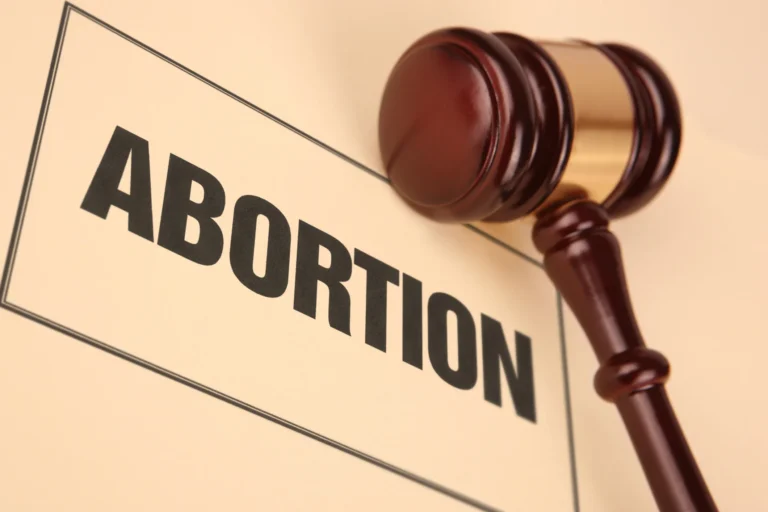Yesterday, the Population Research Institute, the Lepanto Institute, and Human Life international presented at the National Press Club on the results of an investigation into Catholic Relief Services-Kenya. The joint investigation included documentation from on-line research as well as a field investigation in Kenya.
The report documented evidence that Catholic Relief Services (CRS) has facilitated and endorsed contraceptive use in Kenya. Catholic Relief Services is the international humanitarian agency of the Catholic community in the United States; the Catholic Church opposes the use of contraception.
Yesterday, CRS released a response to the investigation. We express concern that CRS appears to have not read the claims carefully before issuing blanket denials. Their replies and our responses follow below:
CRS claims: “The report alleges that CRS promoted condoms as part of our work in Healthy Choices a PEPFAR HIV/AIDS prevention program in Kenya for children ages 10-14. This allegation is false. CRS took the original Centers for Disease Control and Prevention’s (CDC) Healthy Choices I program and changed it to remove all aspects that violated Church teaching. We then implemented this revised version of the program. We could do this because of PEPFAR’s conscience clause, which allows faith-based agencies like CRS to design publicly-funded AIDS programs that respect our religious convictions, including focusing on abstinence and fidelity. Our modified version was approved by the CDC and the Kenya Conference of Catholic Bishops.”
Response: The report acknowledges that although condom promotion was originally included in the curriculum, it was removed after local outcry in Kenya (see page 24, 25, 28, 29 and 30 of the report.) The report is careful to not make false claims, and acknowledged that condoms were removed from Healthy Choices 1. We also highlighted this fact in our “media factsheet” which we handed out to reporters yesterday and is available online. The investigation did confirm, however, that healthy choices 2 did not remove the endorsement of condoms, hormonal contraception, and abortifacients.
Furthermore, we requested self-reported documents by CRS under the Freedom of Information Act (FOIA). These documents confirmed that CRS implemented Healthy Choices 2 for several years to over 30,000 teens in Kenya. These documents confirm the field investigator’s findings that CRS implemented Healthy Choices 2, provided facilitator’s manuals to all sub-partners, and that the program endorsed contraception use as a means to prevent HIV and to prevent pregnancy. (See pages 31-35 of the report). (All 664 pages of the FOIA request are available on request.) Furthermore, CRS documents indicate that while Healthy Choices 1 was modified, no such modifications for Healthy Choices 2 were identified until year 5 of the SAIDIA program.
CRS claims: “The report also alleges that CRS and the CDC changed documents to cover up CRS’ alleged involvement in distributing contraception. This is false. The CDC made an error in a report, incorrectly listing CRS as involved in a program related to contraception. We asked the CDC to correct their mistake on the report, which they did. The PRI/Lepanto claim that asking the CDC to correct their error constitutes a cover-up is simply absurd.”
Response: The original document was produced by PEPFAR (The President’s Emergency Plan for AIDS Relief) not the CDC. The original PEPFAR document states that CRS implemented Healthy Choices 2. The later version removes all indication that CRS implemented Healthy Choices 2. CRS claimed yesterday that they implemented Healthy Choices 2, but without any reference to contraception. All three of these things cannot be true.
Information recently obtained from PEPFAR through the Freedom of Information Act not only confirms everything in the PRI-Lepanto Institute report, but provides additional condemning information regarding CRS’s activities. A detailed report found through the FOIA request will be forthcoming.
CRS claims: “The report also alleges that CRS was involved in Healthy Choices II, a similar program to version I but aimed at children ages 14-18, which was produced by CDC and the government of Kenya. Under Support and Assistance to Indigenous Implementing Agencies (SAIDIA), CRS’ implementing partners used two out of the four sections (those two which were appropriate and in accordance with Church and CRS doctrine) and did not use the other sections, as they were deemed inappropriate. Again, the conscience clause allows CRS to remove and not implement any portions of larger work to which we have a moral objection.”
Response: Our on the ground investigation and self-reporting by CRS, which we acquired through a FOIA request, indicate that CRS did implement Healthy Choices II as written, including the promotion of contraception. (All FOIA documents are available upon request).
CRS claims: “The dispensary highlighted in the PRI/Lepanto report was one of several local partners under SAIDIA. No CRS project funds were ever used to purchase or distribute condoms or artificial contraception. CRS informed its implementing partners of our identity as a Catholic agency and required that no project funds were to be used for any activities outside of Catholic teaching. Under the CRS SAIDIA project, the Kalamba dispensary ONLY dispensed HIV treatment (antiretroviral medication) and medication for treating tuberculosis.”
Response: Online documentation shows that CRS managed technical leadership for all programs labeled, “Prevention of Mother to Child Transmission” and that the Prevention of Mother to Child Transmission program has four prongs, including, “prevention of unwanted pregnancies.”
CRS claims: “The PMTCT Project referenced in the report was not operated under CRS. This was a separate project operated by the local organization funded by another donor. CRS was not involved in this project.”
Response: This is patently false. In addition to our field research, we have dozens of pages of documentation by CRS and other organizations showing that CRS implemented PMTCT. This blanket denial is especially concerning.
CRS claims: “We are concerned that the ‘investigator’ misrepresented himself during his ‘research’ in Kenya. He presented himself as a student doing research for his thesis when he visited CRS’ office and shared his CV. Such misrepresentation does not appear to comply with international standards on research that normally requires full disclosure on the purpose of research to all interviewees. It is our sincere hope that international research standards were upheld during his interviews with children, as young children were not only quoted, but photographed in this report.”
Response: The Population Research Institute has been conducting investigations around the world for over twenty-five years. PRI’s expertise lays in sending field researchers to document abuses committed under reproductive health, family planning, or population stabilization programs. We upheld rigorous standards of research during the investigation in Kenya. Our investigator did not misrepresent himself during the investigation. The investigator considered research integrity when determining whether or not to take any certain picture (see page 31 of the report.)
PRI has a long history of conducting field research; we are concerned that CRS is seeking to discredit us rather than address our concerns for constructive reform.
The Population Research Institute and the Lepanto Institute remain concerned about the need for structural reform at Catholic Relief Services. This report regarding activities in Kenya was not the first of its kind. PRI and others have conducted similar investigations into CRS programs before.
We sincerely hope that CRS will enact reform and that this will be the last investigation into CRS programs.
Media contacts:
Population Research Institute: media@pop.org; 540-660-2733
Michael Hichborn: mdhichborn@LepantoInstitute.org; 540-847-5501








